
Radar | Nov 13,2021
Apr 10 , 2021
By Samuel Wolde-Yohannes (PhD)
The education system should be designed to consider Ethiopia’s limited resources and provide education and training to the greatest number of people through serious attention to their resources. It should not subscribe to the notion that every person, no matter their ability, desire or resources, should go to the university, writes Samuel Wolde-Yohannes (PhD) (swoldeyohannes@mtsac.edu), professor of philosophy at Mount San Antonio College.
Economic and political development go hand in hand with a good educational system. The general view is that the more a country invests in its educational infrastructure, the better chance it has to produce a large number of educated citizens who would realise a more prosperous and better-governed country. The formula seems simple: the more schools and universities, the better the chances of coming out of poverty and establishing more democratic governance. Thus, the mad dash to open up schools and universities even when there is a serious lack of funding and when there is a contemporaneously unrelenting shortage of qualified teaching personnel. This is a flawed path to take. Ethiopia’s focus regarding the education system should be more focused on quality rather than quantity of schools and Tertiary Educational Institutions (TEI).
What is the benefit of producing a vast number of TEI graduates whose competence in their chosen field is so markedly inferior to graduates of even neighbouring African countries? What is the use of graduating millions of high-school students when less than 15pc will manage to enter tertiary education?
Currently, Ethiopia has about 51 public universities and 260 private “accredited” universities, colleges and institutes. Alongside these are around 32 teachers training colleges (TTC) and many agricultural and technical colleges of varying size and quality scattered around the country. Despite rather meagre resources, the country continues to spend a substantial percentage of its GDP on education, in fact, more than many other African country. Anyone who would accuse Ethiopia of being neglectful or improvident about the educational system would be missing the point entirely. Indeed, no country should be expected to spend what it cannot afford; but it can be expected to spend what it can wisely.
Despite the valiant and diligent work done in education reform since the end of the monarchy in Ethiopia, the focus has been more on “multiplication” of accessibility to education at every level: more schools and more TEIs. And if schools and TEIs proved insufficient, the tendency was to pack them to the brim or even adopt a system whereby students are divided between morning, afternoon and evening shifts! In the process, quality of education became the primary casualty. It is disheartening to note that Ethiopia, a country of nearly 110 million people, does not have a single university, college or institute that figures in any continental or world ranking of TEIs. One may plausibly argue that Ethiopia’s educational system is a product of its own efforts and modest resources, whereas other African countries are the beneficiaries of colonial heritage. Furthermore, the country has undergone a constant adaptation and maladaptation of various systems of other countries. A fact that has spawned its own set of problems.
But none of these are ground for failing to rethink education and the educational system to maximise the quantity of the educated population without sacrificing its quality with the country's limited resources. This can be done and must be a priority if Ethiopia wants to remain relevant in the global economy and achieve a modicum of prosperity and good governance.
There is no question that there should be universal basic education for everyone. To begin with, literacy for the non-schooled adult population should be a priority. The state must continue today a campaign that was started in earnest in 1975 because Ethiopia still remains among the least literate nations globally with only 55pc of the population able to read. Contrast this with Kenya's 86pc or Morocco's 98pc! The first aim should therefore be the eradication of illiteracy. It should not be forgotten that reading in one’s language should not be a privilege of the few but a civic right that enhances communication and participation in society. A government that ignores the illiteracy of 45pc of its population is, in essence, relinquishing one of its fundamental tasks. Thus, let the campaign continue either in the form of the youth campaign of 1975, called Zemecha, or by subsidising every school to conduct a literacy program.
Ethiopia’s other fundamental objective should be to provide universal elementary and middle-school education - for children between five and 14, or 15, years of age. Elementary education should consist of one or two years of kindergarten, followed by five or six years of elementary education, after which universal obligatory education should end with two or three years of middle school, the goal of which is mostly to expand on what was learned in elementary school. The eighth grade should end with a universal exam aimed primarily at ending universal obligatory education and determining the form of education or training students should be receiving next.
Another area in need of major reform is the options given upon graduating from middle school. Students with grades that do not provide sufficient evidence that they can benefit from technical or academic education, should be allowed to apprentice for any trade they choose, learn on the job, or receive short training designed to acquire sets of skills that will help them enter the work force. Middle school graduates who do not show particular academic excellence, but demonstrate clear ability to profit from technical education should be offered the possibility of joining the technical high-schools lasting three to four years. Ethiopia’s educational system, both public and private, must be particularly focused on this educational system component since it is ultimately the one that produces the most urgent and indispensable workforce in the nation, such as nurses, accountants and technicians of various trades. The private sector must be encouraged to enter this segment of the educational system more than at any level because this is where most of the workforce is trained to enter the labour market in greater number, and government funding is usually strained to the maximum. At least half of graduating middle-school students should be directed to such high-schools. It should also be added here, that graduates of technical high schools who would want to pursue their education in their chosen field of study should be able to do as such through specifically designed exams that would allow them to enter TEIs.
Finally, middle-school graduates that have demonstrated clear academic excellence should have access to university preparatory schools where the emphasis would be on thorough acquisition of one “world language,” such as English for example; a national language; mathematics; the basic sciences such physics, chemistry and biology; and humanities and social science subjects such as history, philosophy and geography. Students in such schools will conclude their quadrennial studies with a rigorous school termination exam that permits them to enter university or any other TEI. Their particular choice of university education would be determined based on the kind of orientation they choose in high school and the grade they obtained in the subjects on their high school termination exam.
The great majority of university preparatory schools, which have also been the overwhelming majority type of high school in Ethiopia, would benefit enormously from the private sector's participation. The question of funding university preparatory high schools has been a problem since the last major education reform. Whereas the state’s responsibility in educating its people should end with the termination of middle school, it does not mean that it has no obligation for secondary or TEI education.
High schools, both technical and academic, should be substantially subsidised by the state, but not entirely free. Also, the state must provide free tuition to promising but financially strapped students in the spirit of equity and fairness. It is a given that the overwhelming majority of high school students, both urban and rural, require subsidy in one form or another in pursuing their education. There is no doubt that this will cost the state substantially.
However, Ethiopia cannot provide tuition-free education to all high school students without compromising quality as it requires a lot of resources. I believe that money for education is best spent instead in providing free, quality TEI education. Private high schools, academic or technical, though relying on their resources for most of their expenditures, will also depend on substantial aid from the government with the proviso that it regulates their tuition and the quality of their curricula. However, it is obvious that urban schools will tend to be more expensive and require more funding, whereas rural schools would depend heavily on government funding primarily. To some extent, however, high schools should be left to respond to the economy of demand and supply rather than being constantly regulated by the government. Thus, there should not be a “universal pricing” of schools, and each must determine how best to provide quality education to their immediate community at the most reasonable price.
If the system is designed so that about a fifth of all high school graduates have access to TEIs, quality education can be provided in no more than 15 to 20 universities. Instead of spreading intellectual and material resources over 51 universities, 32 teacher training colleges, and numerous other technical institutions, it is much better to reduce to no more than 20 the number of public universities to fund them substantially and staff them adequately. To choose, for example, those already in existence and that are located strategically to satisfy both the federal design and access to resources. The many teacher training colleges and other technical colleges could be integrated within these more prominent public universities. Instead of training teachers in separate institutions, it would be a highly economical use of resources to educate teachers at the university and prepare them to become teachers with an additional year specifically designed to prepare them for their future profession. The same could be argued for the very many technical colleges and institutes bound to compete for the limited financial and intellectual resources of the country.
These sets of proposals present a pyramidal structure that considers Ethiopia’s limited resources and provides education and training to the greatest number of people through serious attention to their resources. It does not subscribe to the notion that every person, no matter their ability, desire or resources, should go to the university. What this mode of thinking has created in far wealthier nations is mostly an army of university graduates doing work that has absolutely nothing to do with their academic training, indebted for life, and often quite discontented with their predicament. University education should not be seen, nor designed, as the only path to decent-paying jobs or a fulfilled life. In a balanced society, every trade or profession without a university degree should provide one with sufficient income to live a life of dignity and fulfillment. The overemphasis on university education has been driven more by national prestige or, worse, by desire for profit than by real necessity.
Most of the work in society is performed by persons with specific skill sets and trades persons than university and college graduates. University education is primarily focused on preparing those who will be responsible for designing general systems and expanding and imparting knowledge to others than for the performance of particular tasks. To become an accountant, nurse, technician, kindergarten teacher or engage in the hundreds of other trades, no one really needs to go to the university. Designing educational systems to maximise university or college graduates is a luxury that only rich countries can afford. Ethiopia’s focus should be on extracting maximum value with limited resources.
PUBLISHED ON
Apr 10,2021 [ VOL
22 , NO
1093]
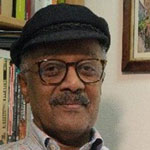

Radar | Nov 13,2021
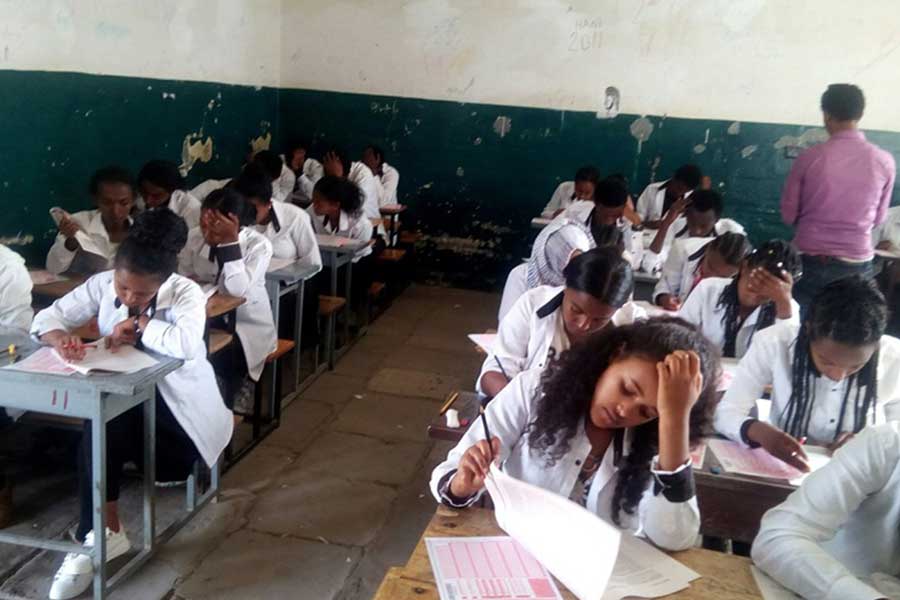
Agenda | Aug 31,2019

Viewpoints | Feb 12,2022

Commentaries | Sep 04,2021

Commentaries | Sep 27,2020
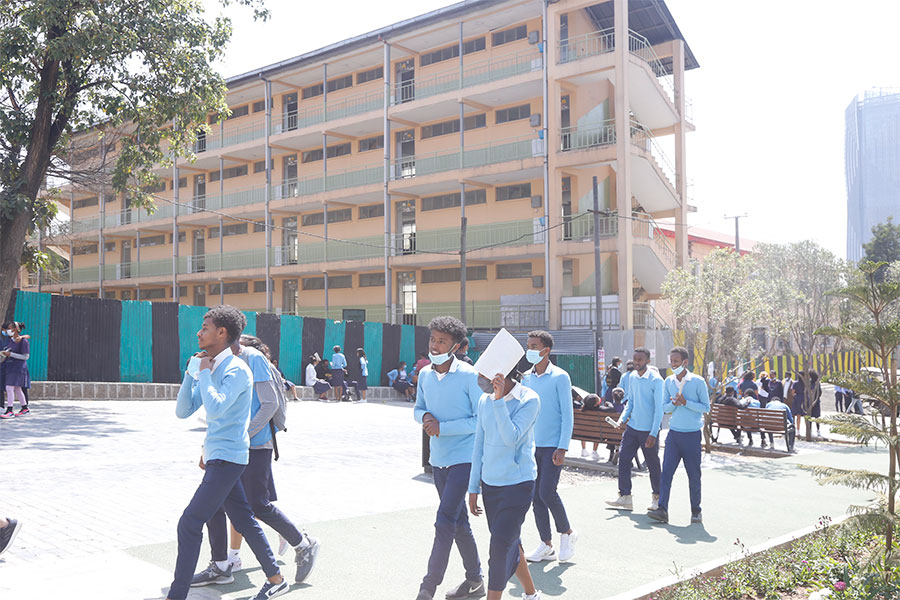
Agenda | Nov 13,2021

Fortune News | Nov 06,2021

Radar | Mar 27,2021
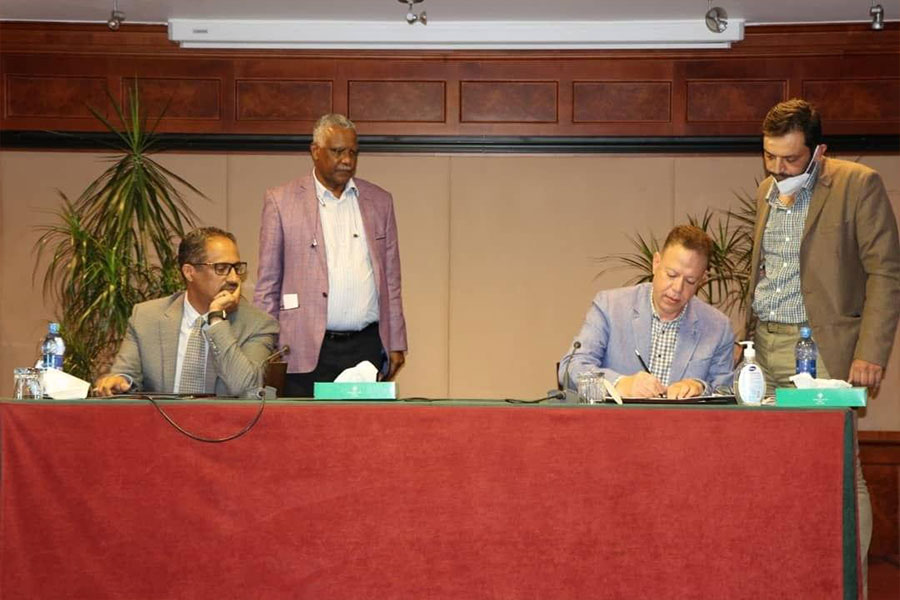
Fortune News | Oct 17,2020
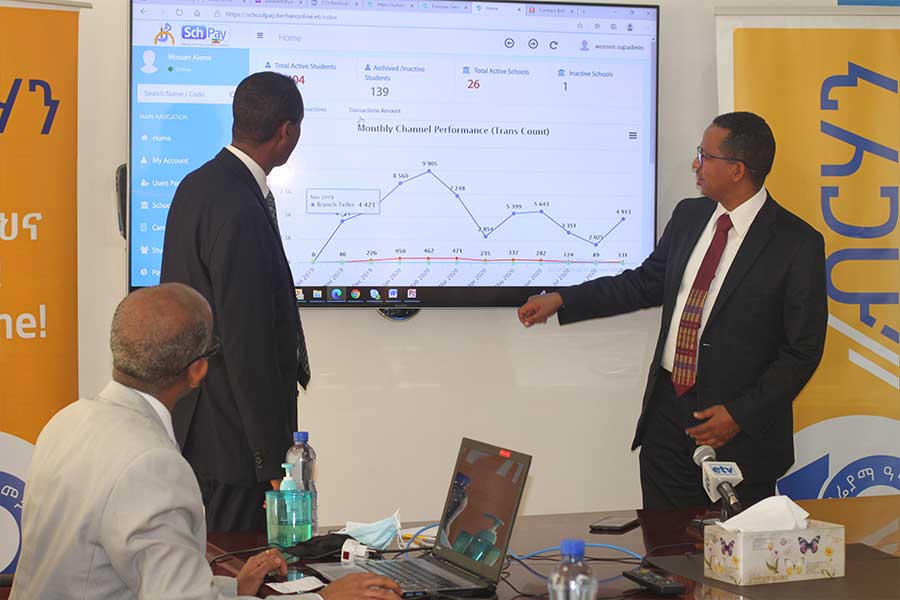
Fortune News | Sep 11,2020

My Opinion | 131766 Views | Aug 14,2021

My Opinion | 128149 Views | Aug 21,2021

My Opinion | 126095 Views | Sep 10,2021

My Opinion | 123717 Views | Aug 07,2021

Dec 22 , 2024 . By TIZITA SHEWAFERAW
Charged with transforming colossal state-owned enterprises into modern and competitiv...

Aug 18 , 2024 . By AKSAH ITALO
Although predictable Yonas Zerihun's job in the ride-hailing service is not immune to...

Jul 28 , 2024 . By TIZITA SHEWAFERAW
Unhabitual, perhaps too many, Samuel Gebreyohannes, 38, used to occasionally enjoy a couple of beers at breakfast. However, he recently swit...

Jul 13 , 2024 . By AKSAH ITALO
Investors who rely on tractors, trucks, and field vehicles for commuting, transporting commodities, and f...

Jul 5 , 2025
Six years ago, Ethiopia was the darling of international liberal commentators. A year...

Jun 28 , 2025
Meseret Damtie, the assertive auditor general, has never been shy about naming names...

Jun 21 , 2025
A well-worn adage says, “Budget is not destiny, but it is direction.” Examining t...

Jun 14 , 2025
Yet again, the Horn of Africa is bracing for trouble. A region already frayed by wars...

Jul 6 , 2025 . By BEZAWIT HULUAGER
The federal legislature gave Prime Minister Abiy Ahmed (PhD) what he wanted: a 1.9 tr...

Jul 6 , 2025 . By YITBAREK GETACHEW
In a city rising skyward at breakneck speed, a reckoning has arrived. Authorities in...

Jul 6 , 2025 . By NAHOM AYELE
A landmark directive from the Ministry of Finance signals a paradigm shift in the cou...

Jul 6 , 2025 . By NAHOM AYELE
Awash Bank has announced plans to establish a dedicated investment banking subsidiary...